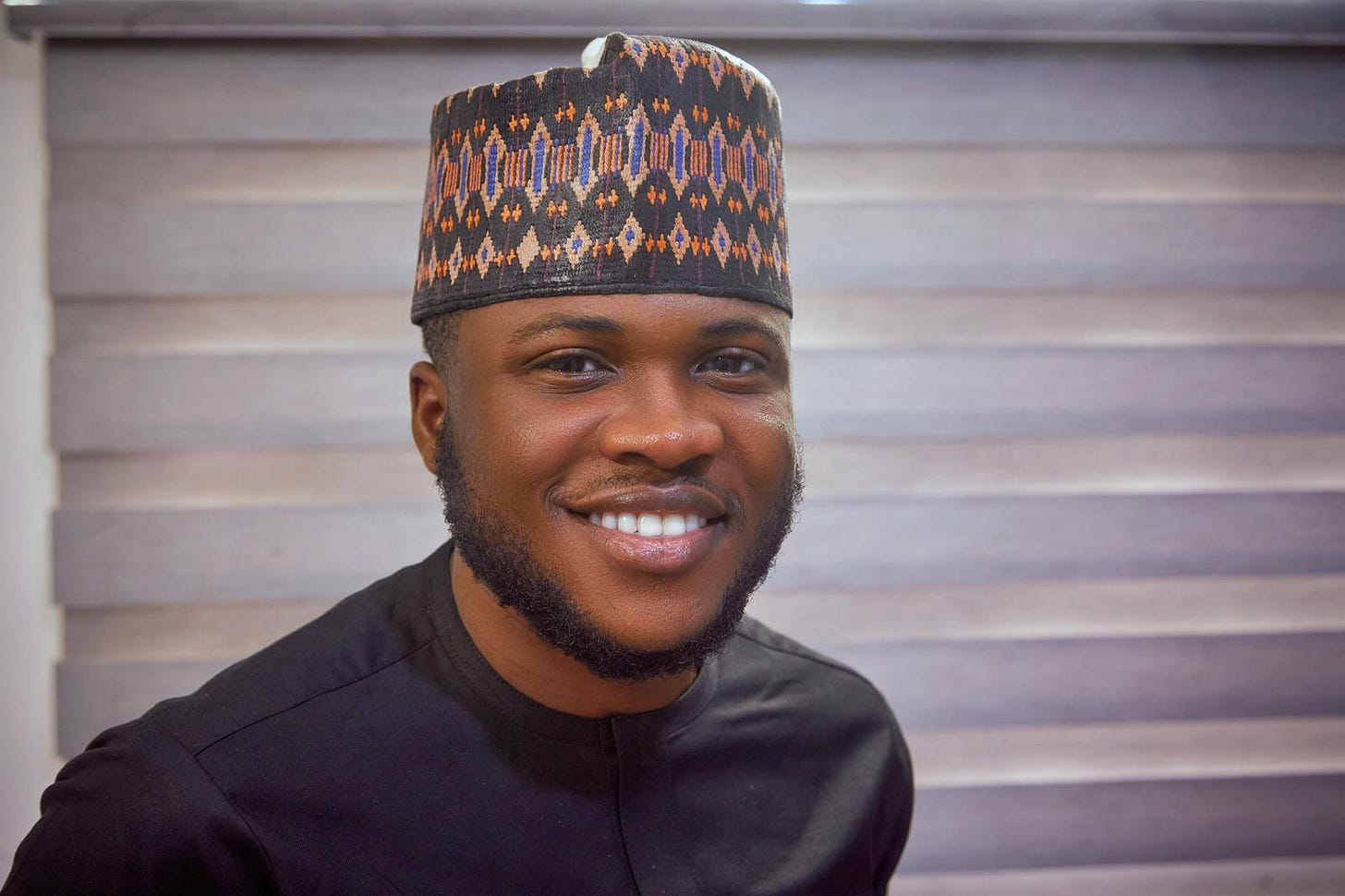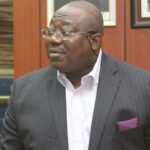
Kehinde Adebiyi is a doctoral researcher at Indiana University, United States. In this interview, he speaks on his career trajectory as a scientist, professional focus, social work and contributions to youth development which have won him several recognitions both at home and in the United States.
You graduated as one of LASU’s top scholars with a historic GPA with distinct research work in microbiology, what were your motivation and guiding principles?
My time at LASU remains one of the most pivotal and formative periods of my life. My first motivation came from my parents, who instilled in me and my twin brother (Taiwo Adebiyi) the belief that exceptional academic achievements were our surest pathway to success. The second came from my pastor at the time, Dr Aiyejunsile, a Doctor of Physiotherapy and a remarkable academic. He recognised my potential and nurtured my scientific curiosity from a young age, leaving an indelible impact on my aspirations.
As for guiding principles, during my second year, after winning my first scholarship award, I reflected deeply and wrote down the phrase, ‘Nature Pays Diligence.’ This philosophy has since become my compass, reminding me to pour unwavering effort and integrity into everything I do, with no room for compromise or mediocrity. My faith in God, combined with these motivations and principles, ultimately culminated in the extraordinary success I achieved at LASU.
Your academic trajectory and excellence earned you numerous awards. How have these recognitions shaped your career path thus far?
These awards have reaffirmed a simple yet powerful truth: hard work matters and its rewards are evident. They have inspired me to strive for even greater achievements while reminding me of the impact I can make. Being celebrated in ways I never imagined has not only motivated me but also redefined my purpose – to help others unlock their potential and become the best version of themselves, regardless of their background or circumstances.
You are currently a Doctoral Researcher at Indiana University. How did that come by, moving from LASU in Nigeria to the USA?
My passion for scientific research began early in my undergraduate years, thanks to the mentorship of two exceptional professors. Knowing that research would be my focal point, I worked diligently to prepare myself for global opportunities. I was competitively selected as one of 33 scholars for the EducationUSA Opportunity Funds Programme by the US Embassy, which recognised us as globally competitive for the US education system. The programme afforded me numerous opportunities and funding that I utilised, leading to multiple fully funded doctoral training offers. I eventually decided to pursue my PhD in microbiology at Indiana University, as it is one of the world’s leading programmes in the field. It’s truly a culmination of hard work and preparation meeting opportunity, all grounded in God’s grace.
You study bacterial cell division and motility. What implications do your findings have for the general public?
My research focuses on understanding the fundamental processes of bacterial cell division and motility. These findings have broad implications for the general public. They can contribute to the development of new antibiotics to combat bacterial infections, advance biotechnological innovations, and improve processes in industries such as food production and healthcare.
You are a leader in social impact work. How did your scientific background influence your approach to tackling social issues and promoting youth engagement?
Yes, I’ve been deeply involved in social impact work, particularly advancing the UN Sustainable Development Goals (SDGs). These goals are bold and address critical issues facing our nation and the world. My scientific background has shown me how closely aligned professional work can be with achieving these goals. For example, my research and academic roles directly connect to goals like Good Health (Goal 3), Quality Education (Goal 4), and Climate Action (Goal 13).
This realisation inspired me to bring others on board by creating awareness of how their professional objectives align with the SDGs. Through initiatives I’ve led, we’ve engaged communities to see their careers not just as personal growth but as contributions to a global cause – building a better world for everyone, everywhere.
You were appointed as the first African to manage the United Nations Millennium Fellowship in 2020, as a programme coordinator. How did that come by and what were your significant achievements?
I founded the first campus-based SDGs club in Nigeria, which expanded to several universities, positioning me as a social impact leader in mobilising youths for the SDGs. Additionally, as one of the first global Millennium Fellows in 2018, I had already established a strong connection with the programme. During the pandemic, as the fellowship was expanding, my track record in science, social impact, and my experience as an alum, I believe culminated in my appointment. It remains one of the greatest honours of my career, allowing me to inspire and engage the next generation of changemakers.
In 2021, you were named as part of the 100 Beating Corona Heroes in Africa by The Future Africa and also won the Union Bank RISE award for your work during the pandemic. What would you say were your key contributions?
During the pandemic, I wore many hats, contributing in various ways to address its challenges. As a microbiologist, I actively worked to help curb the spread of the virus. Concurrently, I led the SDGsACT campus clubs across the country to establish multiple initiatives addressing the challenges posed by the pandemic. One of my most impactful roles was leading over 1,400 Millennium Fellows globally to implement social projects, collectively impacting over 800,000 lives during this critical time. I believe these efforts demonstrated my commitment to the fight against COVID-19, which earned me these recognitions.
How did you balance your passion for science and youth development and academics?
My primary passion lies in science, where I dedicate over 80% of my time. I have a curious mind and enjoy solving problems, and I believe scientific exploration is one of the best ways to address global challenges. My advocacy work complements this passion where I leverage science to tackle social issues and advocate for a fairer world where people can live in peace and shared prosperity. Balancing these passions, I dedicate weekends to advocacy while fulfilling my academic and teaching responsibilities during the week. Teaching is a part of my job that I genuinely love, and it seamlessly ties into my other pursuits. While it’s not without its challenges, I find joy in keeping all three aspects running smoothly.
Your book, Nature Pays Diligence, motivates students to excel in their academics and contribute to their communities. What key message do you hope readers take away from it?
Nature Pays Diligence was born out of my passion to inspire and guide young minds in their academic and personal journeys. The book shares my story, strategies, and a pragmatic approach to achieving academic success, making a social impact, and realising one’s goals. With contributions from leading scholars, it emphasises diligence as the cornerstone of achieving any aspiration. I’m particularly proud of the positive testimonials the book has garnered over the years, and I intentionally made it freely accessible to ensure its message reaches as many people as possible.
Looking ahead, what impact do you hope to make in science, youth development, and global leadership?
Looking ahead, I aspire to be among the leading scientific voices driving groundbreaking advancements globally. I am deeply committed to training and mentoring exceptional scientists who will contribute to shaping the future of innovation and discovery. In youth development, my goal remains steadfast: to empower young people to become the best version of themselves while fostering an awareness of their role in global development.
What advice would you give to students and young people hoping to make great impacts in the fields you’re currently excelling in?
My advice is simple: start now – it’s never too late to begin. Identify your passion, work hard, and stay diligent. Seek mentorship and approach the journey with humility. Embrace failures as stepping stones to even greater successes. And if you hold a faith, let it guide and strengthen you along the way.





